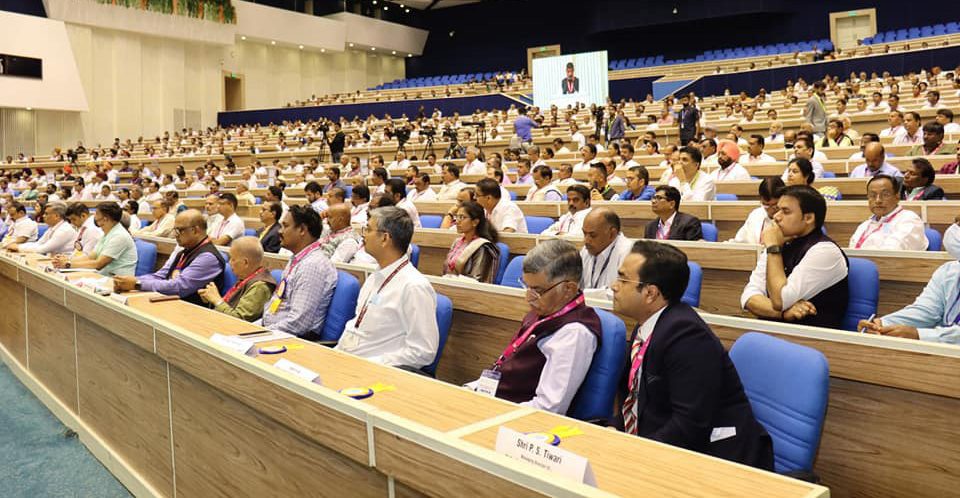The conveners of sub committees constituted from the National Level Committee for drafting the new National Cooperative Policy Document, are meeting today on Monday at the NCDC headquarters in the afternoon.
The National Cooperative Policy Panel held in Pune last month decided to have exclusive subcommittee to have sectoral focus. As a result, eight-sub committees were formed, each consisting of two members or conveners.
The conveners include NCUI President Dileepbhai Sanghani, National Federation of Cooperative Sugar Factories MD Prakash Naiknavare, RBI Central Board Director Satish Marathe, M P Tangrila, Anoop Kumar, B L Meena, Amul MD R S Sodhi, Praveen Reddy, Y Dongre, Dr C Pitchai, Maninder Singh, Nita Kejriwal, Dr Umakant Dash, HK Mishra, Dr Sukhpal Singh and the Nabard Chairman.
The cooperative policy is divided into eight themes including Introduction, Current States and Strategies for growth and development, Structural reforms and governance framework, cooperatives as vibrant entities, training, continuing education, research, knowledge dissemination, accelerating the cooperative movement, infrastructure, technology and innovations and Networks, convergence & collaborations.
It bears recalling that the Ministry of Cooperative made a National Level Committee for drafting the new cooperative policy document under the Chairmanship of former Union Minister Suresh Prabhu and the first meeting of this committee took place in Vamnicom, Pune.
The Panel is rushing against time as the Ministry has given it a time frame of 90 days. The primary focus of the Panel is to achieve the target of “Cooperation to Prosperity” in consultation with all the stakeholders for all-round development of cooperatives at all levels.
Ever since Amit Shah took over as the boss of the newly formed cooperative ministry, he has been talking about his government’s desire to formulate a new national level policy. The Ministry also held a two-day National Conference at Vigyan Bhawan in Delhi for the purpose.
In this meeting, a wide-ranging discussion took place with Cooperation Secretaries, RCSs from all the States & UTs, wherein issues such as legal framework, identification of regulatory, policy & operational barriers; ease of doing business; reforms for strengthening governance; promoting new and social cooperatives; revitalizing defunct ones; making cooperatives vibrant economic entities; cooperation among cooperatives and increasing membership of cooperatives were taken up.
Further, suggestions on the draft Policy were sought from the stakeholders including the general public through the website of the Ministry.














































Cooperative institution can flourish only when it is allowed to go on democratically. It should not be used as puppet of the government to implement it’s schemes and programs.
At one point of time government should allow Cooperative to stand on it’s own leg without government intervention